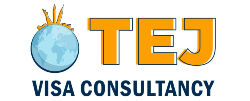Study In Europe 2024 – An Informative Guide For Indian Students

- If you’re looking to study in Europe, you’re not alone. Every year thousands of students apply to European universities to pursue their higher education. Talking about last year’s 2023 stats, around 50,000+ Indian students studied in Europe.
- Why Study in Europe?
- Europe has more than 5000+ universities across 44 countries to which Indian students can apply to. The reason behind the huge number of students attracted to Europe is lower tuition costs, quality education, internationally recognized degrees, and global exposure.
Diverse Educational Opportunities
- Europe boasts a wide range of world-class universities and colleges offering a variety of programs. Indian students can choose from a broad spectrum of courses across multiple disciplines, ensuring they find a program that aligns with their career goals.
High-Quality Education
- European universities are known for their high academic standards and cutting-edge research. Institutions such as Oxford, Cambridge, ETH Zurich, and Sorbonne are globally renowned and offer exceptional educational experiences.
Cultural Experience
- Studying in Europe allows students to immerse themselves in rich and diverse cultures. The continent is home to numerous historical landmarks, art, music, and a variety of cuisines, providing a holistic learning environment.
Scholarships and Funding
- Many European countries offer scholarships and financial aid to international students, making education more affordable. Programs such as Erasmus+ provide funding opportunities specifically for students from outside Europe.
Career Opportunities
- Europe’s robust economy and extensive industry network provide ample internship and job opportunities for students. Graduates from European institutions are often well-regarded by employers globally.
Popular Destinations and Universities
United Kingdom
- University of Oxford
- University of Cambridge
- Imperial College London
Germany
- Ludwig Maximilian University of Munich
- Heidelberg University
- Technical University of Munich
France
- Sorbonne University
- École Normale Supérieure
- Sciences Po
Netherlands
- University of Amsterdam
- Delft University of Technology
- Leiden University
Switzerland
- ETH Zurich
- University of Zurich
- University of Geneva
- Best Courses to Study in Europe
- Master of Business
- Administration
- Culinary Arts
- Law
- Architecture
- Data Science
- International Relations
- Natural Sciences
- Finance
- Engineering
- Medicine
- Marketing
- Europe Intakes 2024
- Europe consists of many different countries, each offering students the chance to study there through various intakes. Let’s take a closer look at some of the popular study destinations in Europe and the intakes they offer to international students:
- United Kingdom: September/October
- France: January & September
- Germany: Summer (September/October) and Winter (April)
- Netherlands: September and February
- Ireland: Spring (February) and Fall (September)
- Spain: October & February
- Poland: September/October & February
- Latvia: Autumn & Winter
Please note that these are general intakes, and it’s essential to check with individual universities for specific intake dates and deadlines.
- Application Process
Research and Selection
- Choose Your Program: Decide on the course and universities that match your interests and career goals.
- Check Requirements: Each university and program will have specific entry requirements, including academic qualifications, language proficiency, and sometimes entrance exams.
Prepare Your Documents
- Academic Transcripts: Certified copies of your previous education.
- Language Proficiency: Test scores for English (IELTS/TOEFL) or other languages as required.
- Statement of Purpose: A personal essay explaining your motivations and goals.
- Letters of Recommendation: Usually from academic or professional references.
- Passport and Photographs: Valid passport and recent photographs.
Application Submission
- Online Application: Most universities have online application systems.
- Application Fee: Some institutions require a non-refundable fee.
Visa Process
- Acceptance Letter: Obtain an offer letter from the university.
- Financial Proof: Show proof of funds to support your stay.
- Health Insurance: Mandatory in many countries.
- Visa Application: Apply at the respective country’s consulate or embassy in India.
Scholarships and Funding
Erasmus Mundus Scholarships
- A prestigious program that offers scholarships to students from non-European countries to study in Europe.
DAAD Scholarships (Germany)
- The German Academic Exchange Service provides numerous scholarships for Indian students.
Chevening Scholarships (UK)
- Funded by the UK government, these scholarships are for outstanding students with leadership potential.
Eiffel Excellence Scholarship Program (France)
- Offered by the French Ministry of Europe and Foreign Affairs to attract top international students.
Living and Accommodation
Accommodation Options
- University Dormitories: On-campus housing provided by the university.
- Private Rentals: Apartments or shared housing off-campus.
- Homestays: Living with a local family.
Cost of Living
- Varies significantly by country and city. Generally, Northern and Western Europe are more expensive than Southern and Eastern Europe.
Part-Time Work
- Students can often work part-time during their studies, subject to visa restrictions.
Post-Study Work Opportunities
Stay Back Options
Many European countries offer post-study work visas, allowing graduates to seek employment.
Job Search Resources
- University Career Services: Utilize the career services offered by your institution.
- Online Job Portals: Websites like LinkedIn, Indeed, and local job portals.
- Networking: Attend industry events, seminars, and career fairs.
Cultural Tips
Language
- While many courses are taught in English, learning the local language can enhance your experience and employability.
Etiquette
- Respect local customs and traditions. Each country has its own social norms.
Travel
- Europe’s extensive transport network makes traveling around the continent easy and affordable.
Conclusion
Studying in Europe in 2024 offers Indian students an unparalleled opportunity for academic excellence, cultural enrichment, and career advancement. By carefully planning and preparing for the application process, securing funding, and immersing in the local culture, students can make the most of their European education experience.
Navigating the student visa process can be complex, but our firm is here to simplify it for you. With our expertise and personalized guidance, we ensure that you have a smooth and hassle-free experience from start to finish. Whether it’s understanding visa requirements, preparing documents, or scheduling interviews, we are committed to supporting you every step of the way. Contact us today to start your journey towards studying in Europe. Your dream education awaits, and we’re here to make it a reality.






